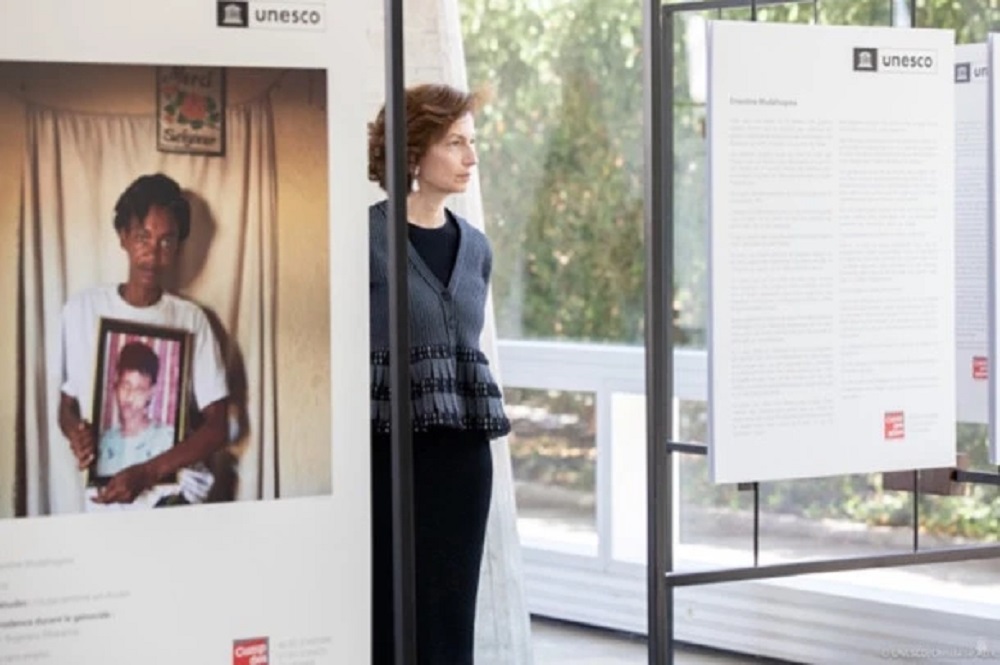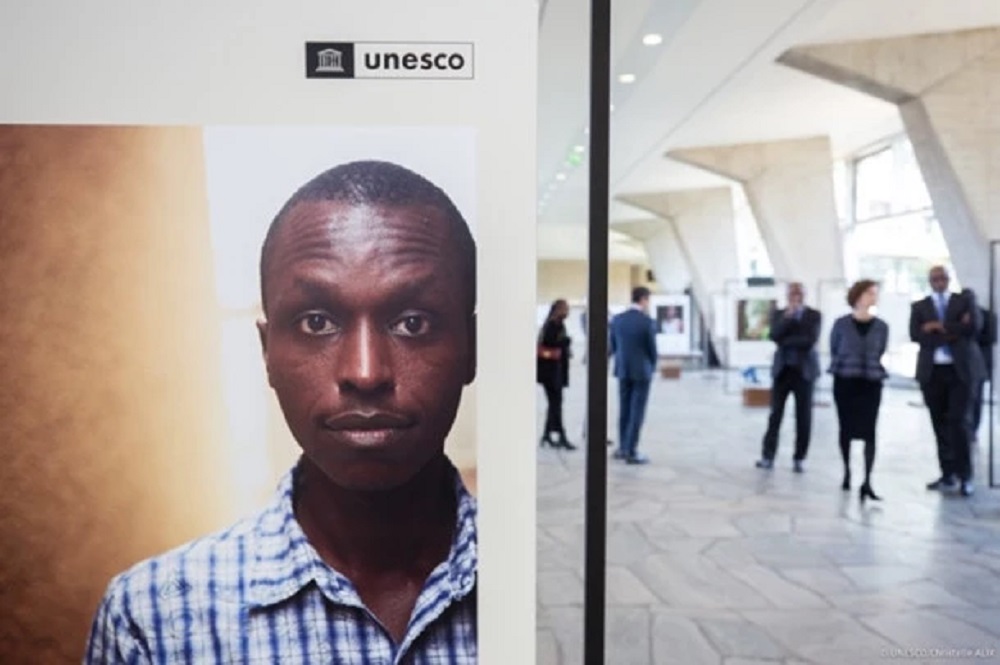
« A scar in history » @ UNESCO/Christelle Alix
“We knew our destiny would be grim, but we didn’t expect to be exterminated by our own neighbours”. This is an excerpt from Gaudance’s testimony. She is a survivor of the 1994 Genocide against the Tutsi in Rwanda. Her story, together with her portrait, is part of the photo exhibition “Une cicatrice dans l’histoire" (A scar in history)” that UNESCO organized between 12-21 April 2023 to commemorate the 29th anniversary of the Genocide and pay tribute to survivors along with their compatriots who bravely resisted.
Conceived by the Camp des Milles Foundation – Memory and Education, the exhibition features 14 portraits captured by the acclaimed French photographer Stéphane Dumont de Sauret and accompanied by personal testimonies. It was officially presented to the public on 13 April 2023 in partnership with the Permanent Delegation of Rwanda to UNESCO, the Camp des Milles Foundation and Ibuka France.
“These photos are powerful reminders of the persisting challenges in the fight to prevent mass atrocity crimes. For the exhibition heroes, genocide left indelible marks on their lives, souls and bodies. But through education and remembrance, we can begin to heal these scars,” said UNESCO Director-General Audrey Azoulay during her visit to the exhibition on 19 April.

The exhibition opening took place in the presence of UNESCO Assistant Director-General for Culture Ernesto Ottone; H.E. Mr François Nkulikiyimfura, Ambassador Extraordinary and Plenipotentiary, Permanent Delegate of Rwanda to UNESCO; and Marcel Kabanda, President of Ibuka France.
Dafroza Gauthier, Co-founder of the Collective of Civil Plaintiffs to Rwanda, who dedicated her life to seeking justice for genocide survivors, and Nicolas Sadoul, Director of the Camp des Milles Foundation, both behind the conception of the exhibition, shared how it was brought to life ten years ago. They stressed the continued importance of keeping the stories of survivors alive and teaching current and future generations to cherish and protect human dignity.
“I have lost all my family”: stories of genocide survivors
Epiphanie, Gaudance, Cassier, Ernestine and other survivors whose stories are in the spotlight of the exhibition witnessed unimaginable violence, because they were Tutsi. Many of them lost their families during the Genocide and were on the verge of death themselves. Their stories are of pain, suffering, survival, despair, hope, strength and resilience of the human spirit in the face of unimaginable horrors.

“I studied at the private school … because Tutsi were not admitted to public schools,” remembers Ernestine, who never graduated. “I feel sad: the disability caused by my injuries has prevented me from having a family,” says Epiphanie, the sole survivor of the family of 12.
Maurice, who was five during the Genocide, recalls how he and his little brother were saved: “[A] Hutu neighbour explained to my mother that the little Tutsi girls would not be killed but spared for future “breeding” purposes. As there were no little girls in our house, he gave my mother two red dresses.”
100 days of remembrance
The 1994 Genocide against the Tutsi in Rwanda remains a haunting scar on humanity’s conscience. In just 100 days, more than 800,000 members of the Tutsi minority were murdered by the Hutu extremist-led government. This period also saw the killing of moderate Hutu and those who stood against the genocide. Every year, 7 April marks the beginning of a 100-day mourning followed by remembrance events in Rwanda and around the world under the slogan “Kwibuka” (“to remember”).
UNESCO joins yearly commemorations of the International Day of Reflection about the Genocide against the Tutsi in Rwanda and works systematically with policy-makers, educators and civil society worldwide to advance education about genocide and promote its importance for conflict transformation and sustainable peace.
Subscribe to view notification of our daily news
RwandaPodium © All Rights Reserved. Powered by thesublime.rw